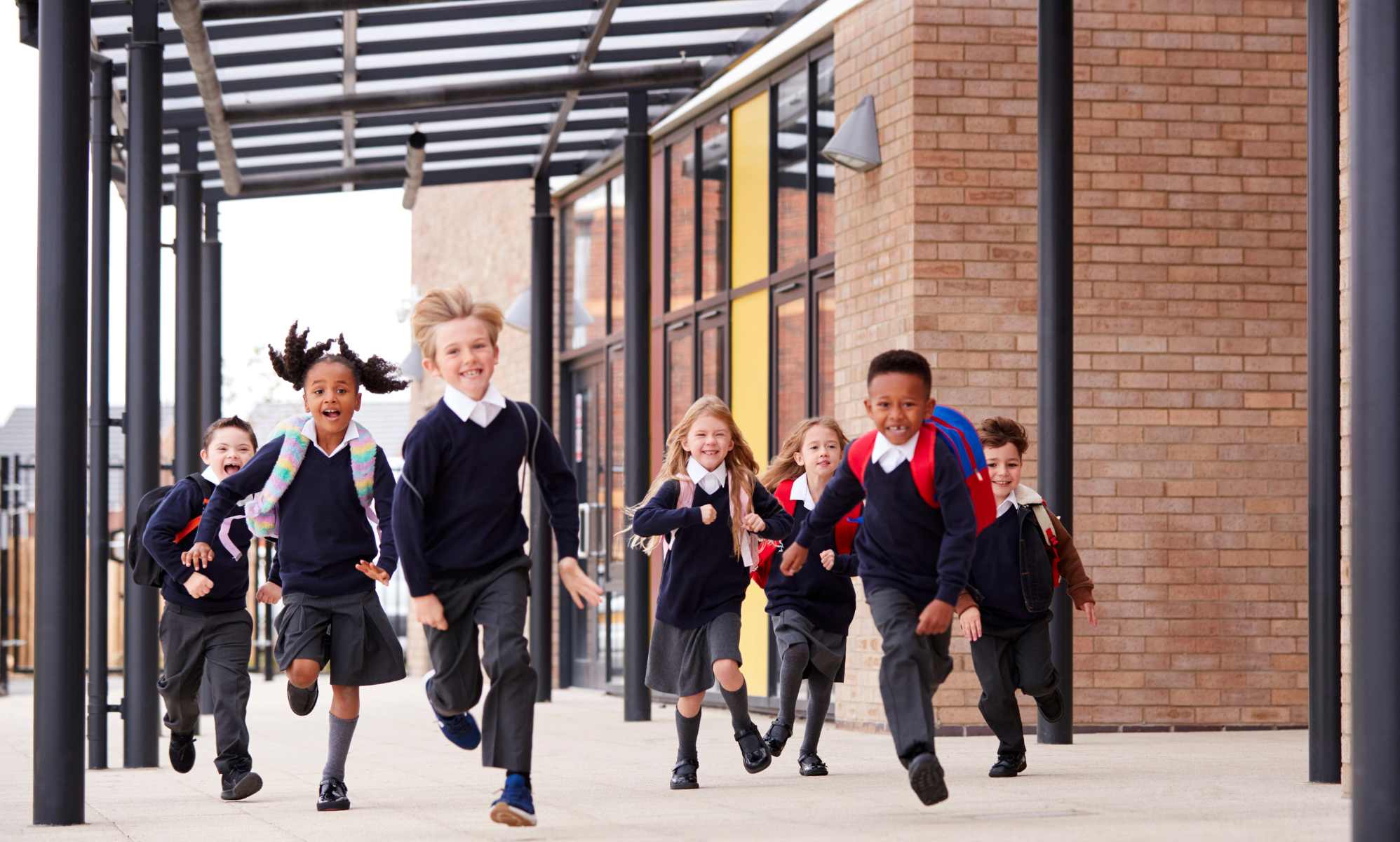An education company which offers LGBTQ+ and equality resources to children, parents and teachers in schools is under fire for allegedly teaching “transgender education” to four-year-olds. But, as PinkNews found, that is simply not the case.
Pop’n’Olly is at the centre of a media storm after the Daily Mail ran a story focused on parents at Meopham Community Academy in Kent being angry about the sessions the company was slated to hold at the school.
During a forum between Pop’n’Olly staff, teachers and parents about what content would be covered, the meeting reportedly became “heated” and “aggressive” and one parent anonymously told the Daily Mail “parents are worried the content does not feel age-appropriate”.
The tabloid ran a headline suggesting that “children as young as four” will be introduced to “transgender education”.
However, as PinkNews has found, children in this age group are instead taught about diverse family types, not trans-related topics. Specifically, the nursery-aged children are taught there are lots of different families youngsters can belong to – such as living with two mums, grandparents or foster carers – and “all families are equal and that the primary role of a family is to love, care for, and support each other”.
As laid out in Pop’n’Olly’s workshop programme information pack, which is readily available on the company’s website, children are not taught terms such as trans and non-binary until they are in years 5 and 6. The aim of these sessions for older children is to show that LGBTQ+ people are “a valid and welcome part of our society”.
Between years 1 and 4, children are also taught about combating negative gender stereotypes. For those in Key Stage 1, this includes learning that “anyone can pursue any job, wear any clothes, or play with any toys”, whilst those in Key Stage 2 learn to “identify conscious and unconscious gender stereotyping”.
Speaking with PinkNews about the backlash and misinformation being spread about the company’s work, Jack Lynch, workshops & training lead at Pop’n’Olly, said content in the sessions was created by a team which has more than 50 years of experience working with primary school-aged children.
As well as this, it was designed alongside other educational guidance such as what is set out in the UK government’s RSE guidance, Ofsted guidance and public sector equality duty.
“This is not just me coming in with my opinion and delivering this,” they told PinkNews.
‘Empowering children, empowering teachers and empowering parents’
While Lynch did stress that the majority of parents on the forum call were “extremely positive”, it is still “incredibly tough” for them to deal with such aggression.
“Especially, when there’s questions related to whether transgender and non-binary people exist, and whether LGBTQ+ people exist in general,” they said.
They added the reaction of some parents to their work cannot be taken “out of the context” that many of them were educated under Section 28, which – Lynch says – has resulted in “a generation that does not have the language to describe LGBTQ+ identities past the sexualised language”.
This is the reason Pop’n’Olly runs the forum for parents as “we really want to help parents understand how you can teach about LGBTQ+ identities from a very young age and […] that does not have to be from a sexualised perspective”.
“It’s teaching it from a relationship perspective, in terms of developing positive relationships with other people, but also relationships with ourselves,” they added. “That’s really, really crucial in terms of what we do.”
“The work that we are doing with Pop’n’Olly is all about empowering children, empowering teachers and empowering parents and carers and other adults to feel confident and positive about LGBTQ+ identities.
“It’s about really sparking joy and being ultra positive about LGBTQ+ people.”
In a statement provided to the Daily Mail, Michele Sowden-Mehta, senior school improvement lead at The Golden Trust Alliance which runs Meopham Community Academy, said: “The purpose of the forum was to hear the views of parents specifically around the content being taught and when they feel it is age-appropriate to introduce these themes to their children.
“We understand that every parent wants the very best for their child, and, when opinions differ, the discussion can become heated.
“The vast majority of feedback we have received to date has been supportive and we will continue the discussions with parents, carers, and the wider school community through a formal consultation in the new year.”
Sowden-Mehta continued: “This is not only about children who identify as LGBTQ+. This is about all children.
“We know for example that children who do not fit into typical gender stereotypes, such as boys who do not enjoy football, are much more likely to be bullied than those who do. Or, children who do not live with a mum and a dad, but with two mums or one parent or a grandparent, and may feel that they are different to others.
“We want them to understand that everyone’s situation may be different but those around them love them very much.
“However, for pupils who do identify as LGBTQ+, we know that they are twice as likely to be bullied. The impact this has on a person’s mental health can be devastating, with LGBTQ+ young people being two times more likely to contemplate suicide, and Black LGBTQ+ young people three times more likely.”
